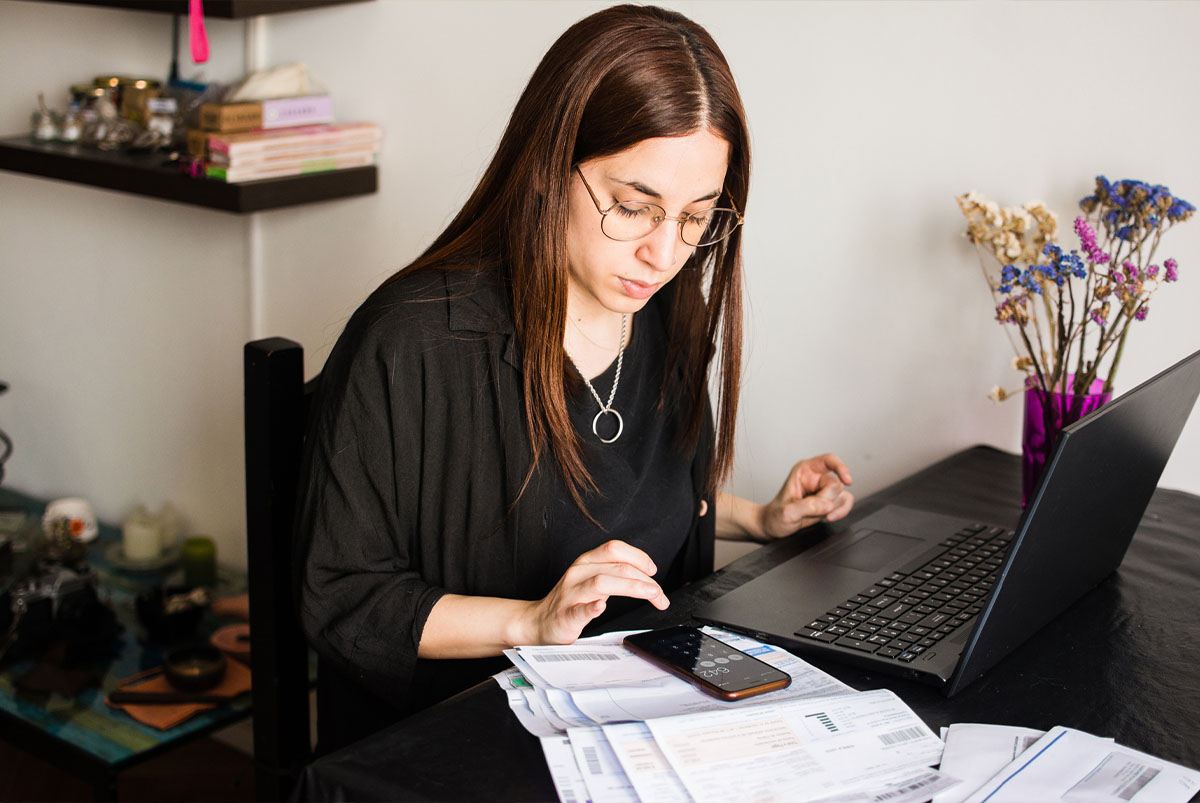Ready To Buy a Home?
Get Approved to Buy a Home
Rocket Mortgage® lets you get to house hunting sooner.
If you currently have a mortgage, you might find yourself looking for ways to pay down your principal as fast as possible. With many mortgages, paying down the principal balance early can help you build equity and decrease the amount you pay in interest over the life of the mortgage.
When you have some extra money at the end of the month, making an additional payment on your mortgage might be your first inclination. While this is a wise option in certain situations, there are other things you’ll want to consider.
What Is A Principal-Only Payment?
A principal-only payment is made in addition to your standard mortgage payment. It’s an optional payment you can make to help pay your mortgage off quicker and reduce the interest you’ll be charged over the loan term.
Typically, when you make a mortgage payment, you’re really making four (or five) smaller payments. This includes the principal component of your mortgage, the interest payment, property taxes, and homeowner’s insurance. If you have less than 20% equity in your home, you might also need to pay for private mortgage insurance (PMI).
The principal component of your mortgage represents the amount of equity you accrue each month. Essentially, this is how much of your home you’re “buying back” from your mortgage lender. Toward the beginning of your mortgage, a more significant portion of your payment goes to interest instead of principal. As you near the end of the mortgage, the percentage of your payment going toward the principal will significantly increase.
How Do Principal-only Payments Work?
For a mortgage to be fully paid off – and the title is completely transferred to you – you’ll eventually need to pay down the entire principal. If you have a 30-year mortgage and never make any additional payments, it’ll take 30 years for the mortgage to be exhausted.
However, if you make enough principal payments, your principal will be paid off before your mortgage ends. Furthermore, making additional principal payments will reduce the portion of the loan subject to interest. For example, if you make an additional $100 principal-only payment today (with a 5% interest rate), you’ll save $332 over 30 years.
In other words, the more you’re willing to pay toward your principal, the more money you’ll save. However, principal-only payments alone won’t lower your subsequent monthly payments. Instead, the savings will be realized at the end of your mortgage or whenever you choose to sell your home.
Principal payments vs. extra payments
It’s important to note that a principal-only payment differs from an additional loan payment. Making an “extra payment” includes the principal and the interest you pay in a given month. In contrast, a principal-only payment includes the amount you choose to contribute to the principal.
How to make a principal-only payment
The rules for making a principal-only payment vary by lender. So if it’s your first time trying to make this sort of payment, start by calling your mortgage lender and learning more about their processes.
With many lenders, creating an additional principal payment will be pretty straightforward – especially if you pay electronically via a payment portal. In this case, there will likely be an entry that says “additional principal payment,” or something along those lines, where you can choose how much more you want to pay.
Remember that your lender will usually only let you make additional payments if you’re up to date with your mortgage. In other words, your regular monthly payment will always be treated as the top priority. Also, they might prevent you from making additional payments if you have any outstanding fees (late fees, service fees, etc.).
Are Principal-only Payments a Good Idea?
When it comes to credit cards and other high-interest forms of debt, paying down your principal as fast as possible is almost always a good idea. When the interest rates are higher than what you can safely expect to get from other investments, eliminating this type of debt will almost always be in your best interest.
However, deciding whether to make additional payments on your mortgage debt should depend on your financial situation. Due to the leverage provided by your home, mortgage interest rates are typically lower than other types of consumer debt. In other words, you’ll want to carefully consider the pros and cons of making an additional principal-only mortgage payment.
Advantages of principal-only payments
The most obvious advantage of making additional principal-only payments is that it helps you pay down your mortgage in a shorter amount of time. This might be incredibly tempting when you’re toward the end of your mortgage and want to close it out and officially make your home your own.
By paying down your mortgage faster, you can save considerable money on interest. Unless you have an interest rate below 3.3%, you’re currently scheduled to pay more in interest than principal throughout your mortgage. So anything you can do to avoid future interest charges can be very beneficial.
To summarize:
- Principal-only payments help you pay off your mortgage faster.
- Principal-only payments minimize the amount you pay in interest.
- The impacts of principal-only payments compound over time.
Disadvantages of principal-only payments
Of course, there will also be drawbacks to making additional principal-only payments. Your mortgage is likely the cheapest (in terms of interest rates) source of debt you have. So if you have other obligations, those should probably be where you prioritize extra cash.
Additionally, because these payments don’t lower your next monthly payment, you won’t see any savings until later. Once you make the payment, you won’t be able to “get it back,” as you might with a credit card. This can create financial challenges for anyone on a tight budget.
It’s also important to note that some lenders charge prepayment fees, especially in the early years of the mortgage. This is why it’s a good idea to talk to your lender before making prepayments.
In conclusion:
- Mortgage debt is usually less expensive, so you should pay your other debts first.
- Principal-only payments only make sense if you have the capital.
- Some principal-only payments will impose a fee.
What Are Alternatives to Making Principal-only Payments?
In addition to making principal-only payments, there are a few other ways to minimize the cost of your mortgage. For example, by making biweekly payments – rather than monthly payments – you can avoid at least some exposure to interest.
If you’re overwhelmed by the interest component of your mortgage, you might want to consider refinancing. Interest rates often change, meaning there could be an opportunity to significantly reduce your monthly payment if you refinance.
Is It Better To Pay the Principal or Interest?
Generally, making an additional principal payment will be your smartest option. This is because the principal will eventually accumulate interest over time. So the earlier you are in the mortgage, the more money you can save.
Put Your Extra Cash to Good Use
Overall, making principal-only payments can help you minimize interest expenses and pay off your mortgage early. However, it’s essential to be mindful that making these payments can have a high opportunity cost and the possibility of an early prepayment fee.
Take the first step toward buying a home.
Get approved. See what you qualify for. Start house hunting.
The Short Version
- A principal-only payment is a payment made in addition to your standard mortgage payment
- If you make enough additional payments, your principal will be paid off before your mortgage comes to an end
- When it comes to credit cards and other high-interest forms of debt, paying down your principal as fast as you can is almost always a good idea




